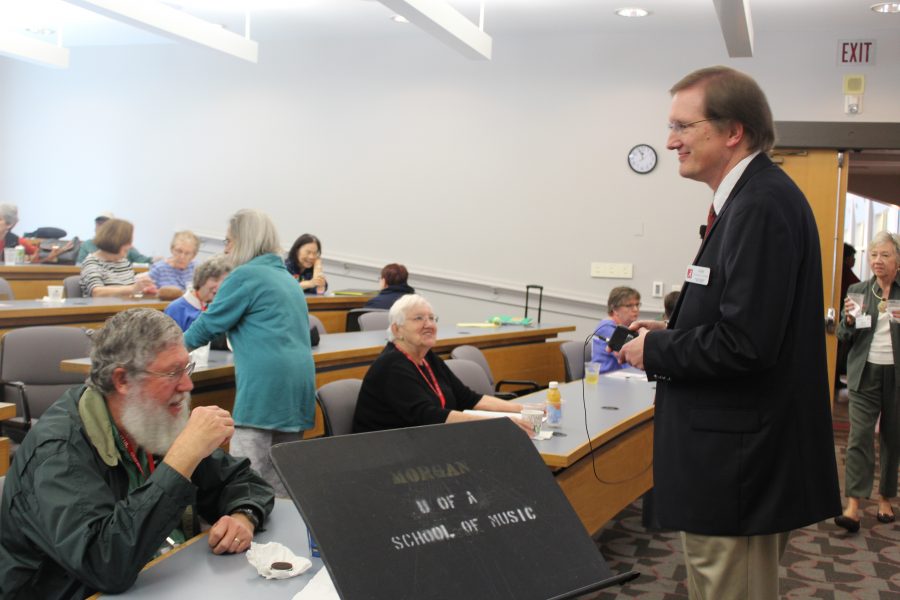With the growing epidemic of cardiovascular disease in America, Dr. Edward Geno presented a lecture entitled, “Cholesterol” about ways to reduce risks of high cholesterol and potential cardiovascular disease on Thursday.
Gloria Oglesby, facilitator of the lecture, said Dr. Geno is a family medicine physician at the University Medical Center, and he also is a professor at family medicine for the residency program in the College of Community Health Sciences. He works with the family residence in minor surgery and hospital medicine.
Geno began the lecture by explaining the science behind cholesterol, including how the body creates it, its importance and the body’s need for it.
“As a structure, cholesterol is essential in the body,” he said. “It becomes part of cell walls to increase fluidity.”
There are two different types of cholesterol, among others, that he explained, known as high-density lipoproteins and low-density lipoproteins. These are the two types that are looked at in risk factors. He referred to HDL as the “happy cholesterol” versus LDL, which he called the “lousy cholesterol.” Those with high LDL tend to have a higher risk of cardiovascular disease compared to those with high HDL.
He lectured heavily on the use of statins and how they can reduce the risk of cardiovascular disease. He discussed the positives and negatives and demonstrated the studies conducted by the United States Preventative Services Task Force. The medication itself does not stop a heart attack or lower cholesterol, but it affects many enzymes and decreases the risk of cardiovascular events for those who already have risk factors present.
The lecture emphasized the importance of primary prevention, which is in place to decrease somebody’s risk of having a coronary death in the future.
“What we’re trying to do with cholesterol is primary prevention,” he said. “Primary prevention is to keep somebody from ever having a heart attack or cardiac event, any, at all, and that’s a hard thing to do.”
Geno spoke on the importance of everyday diet and exercise and the need for balancing food groups. While a plate that is mostly full of meat may look appetizing, it is not what people need to stay healthy. He said he wants people to be able to eat well, eat what they need, but not eat what is going to harm them. Half of the plate should be vegetables, a quarter of it should be starch and another quarter should be meat.
“You have to balance it yourself,” he said. “If I eat more calories than what I need, I’m going to stimulate the formation of cholesterol.”







